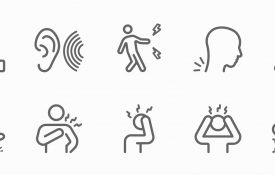-

What Kind of Chocolate is Best? The Last You Taste, Says a New Study
Like to save the best for last? Here’s good news: If it’s the last, you’ll like it the best. That is the finding of a new study published in Psychological Science, a journal of the
-
Older Drivers Can be Trained to Avoid Car Crashes
Why are older drivers, especially those over 70, involved in crashes primarily at intersections? You may tend to attribute this to cognitive or physical decline, such as slower reaction time or poor sight. These factors are undoubtedly part of the problem; however new research by some University of Massachusetts Amherst researchers have come up with another explanation - older drivers acquire bad habits, and those habits can be unlearned. “The effectiveness of our training program indicates that at least a major part of older drivers’ problems can be remediated,” says psychologist Alexander Pollatsek, who authored the article with Mathew R. E. Romoser, and Donald L.
-
Grading The Online Dating Industry
New Scientific Report Finds Some Positives, Many Areas for Improvement The report card is in, and the online dating industry won't be putting this one on the fridge. A new scientific report concludes that although online dating offers users some very real benefits, it falls far short of its potential. Unheard of just twenty years ago, online dating is now a billion dollar industry and one of the most common ways for singles to meet potential partners. Many websites claim that they can help you find your “soulmate.” But do these online dating services live up to all the hype?
-
Right Hand or Left? How the Brain Solves a Perceptual Puzzle
When you see a picture of a hand, how do you know whether it’s a right or left hand? This “hand laterality” problem may seem obscure, but it reveals a lot about how the brain sorts out confusing perceptions. Now, a study which will be published in a forthcoming issue of Psychological Science, a journal published by the Association for Psychological Science, challenges the long-held consensus about how we solve this problem. “For decades, the theory was that you use your motor imagination,” says Shivakumar Viswanathan, who conducted the study with University of California Santa Barbara colleagues Courtney Fritz and Scott T. Grafton.
-

A New Study Shows How to Boost the Power of Pain Relief, Without Drugs
Placebos reduce pain by creating an expectation of relief. Distractions relieve it by keeping the brain busy. When combined, they make for a potent pain reliever, a study shows.
-
The Complex Relationship between Memory and Silence
People who suffer a traumatic experience often don’t talk about it, and many forget it over time. But not talking about something doesn’t always mean you’ll forget it; if you try to force yourself not to think about white bears, soon you’ll be imagining polar bears doing the polka. A group of psychological scientists explore the relationship between silence and memories in a new paper published in Perspectives on Psychological Science, a journal of the Association for Psychological Science. “There’s this idea, with silence, that if we don’t talk about something, it starts fading,” says Charles B. Stone of Université Catholique de Louvain in Belgium, an author of the paper.

